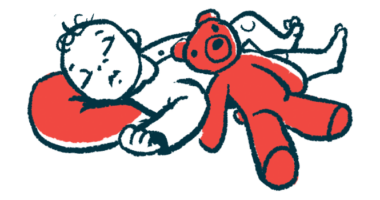Managing Gaucher disease at home and school
Last updated July 11, 2025, by Susie Strachan
Caring for a child with Gaucher disease often means finding ways to adapt their routines and environment to meet their unique needs.
In practice, this might include making time for rest on infusion days, adjusting activities to match their energy levels, working with teachers to arrange school accommodations, and leaning on your child’s healthcare team for guidance and support.
Manage medications at home
Staying on top of treatment routines at home, like regular enzyme replacement therapy infusions done with the help of a visiting nurse or trained caregiver, and knowing what to expect, can help make infusion days feel more manageable for both you and your child.
- Keep medication schedules consistent using a calendar, alarm, or visual aid.
- Build quiet time into infusion days to support rest and recovery.
- Track mild reactions like fever or rash and report them to your child’s care team.
- Talk to your child about what to expect during infusions to reduce stress.
If your child takes other medications, like pain relievers or supplements, you may want to track when these are needed. You should also understand how they might interact with infusions.
Make daily routines more enjoyable
Managing Gaucher at home means making adjustments to help your child stay comfortable and feel included in daily routines, even when symptoms like fatigue or bone pain flare up.
- Offer downtime after school or activities without treating it as a setback.
- Choose low-impact activities like drawing or audiobooks on harder days.
- Ask your child’s care team about exercises that can be done at home.
- Set up a cozy corner for rest with pillows, books, or quiet toys.
- Let your child know it’s OK to talk about fears or hard days.
Support your child’s social life
Building your child’s social skills and supporting friendships can help them feel connected and understood, whether at home or at school.
- Encourage low-key social activities like video calls, playdates, or hobbies.
- Talk with teachers about social opportunities like buddy programs or clubs.
- Help your child explain their condition to peers in a way that’s easy to understand.
Share information with school staff
Teachers and staff play an important role in your child’s well-being and safety at school. Sharing information with them can help your child get the support they need to stay safe, engaged, and understood.
You might consider requesting a meeting with key staff members to go over your child’s needs and provide a written overview of Gaucher disease. Resources from the National Gaucher Foundation or Gaucher Disease News can help explain the condition in simple terms.
If needed, you can ask the school about setting up a 504 Plan or an individualized education program (IEP) to establish both academic and physical accommodations.
It may also help to suggest specific classroom supports, such as extra breaks or adjusted assignments. Collaborating with physical education staff to identify safe, enjoyable activities can also make a big difference.
And since Gaucher symptoms can sometimes escalate quickly, consider sharing signs that may need urgent attention, such as severe pain or sudden fatigue, along with emergency contact information and a backup adult in case you’re unavailable.
Tap into healthcare and community support
Working with a team of healthcare professionals can help you manage care at home and school while giving your child access to more specialized support.
By keeping your child’s healthcare team informed about school plans or changes in daily routines, they can help you navigate any necessary adjustments. They may also be able to provide notes for accommodations or communicate directly with school staff to explain symptoms and support your child’s needs in the classroom.
Beyond medical care, you can reach out to Gaucher disease support groups like the Gaucher Community Alliance or connect with social workers and mental health therapists for emotional support and practical help for managing your child’s needs at home and at school.
Gaucher Disease News is strictly a news and information website about the disease. It does not provide medical advice, diagnosis, or treatment. This content is not intended to be a substitute for professional medical advice, diagnosis, or treatment. Always seek the advice of your physician or other qualified health provider with any questions you may have regarding a medical condition. Never disregard professional medical advice or delay in seeking it because of something you have read on this website.
Recent Posts
- Elevated uric acid levels linked to disease severity in type 1 Gaucher
- Abcertin meets Cerezyme biosimilar criteria in Phase 1 study
- Gaucher disease diagnosis speeds up, but complications still common
- A week in the life of a working mom, wife, and caregiver
- Yes, I have Gaucher disease, but I don’t feel ‘sick’





